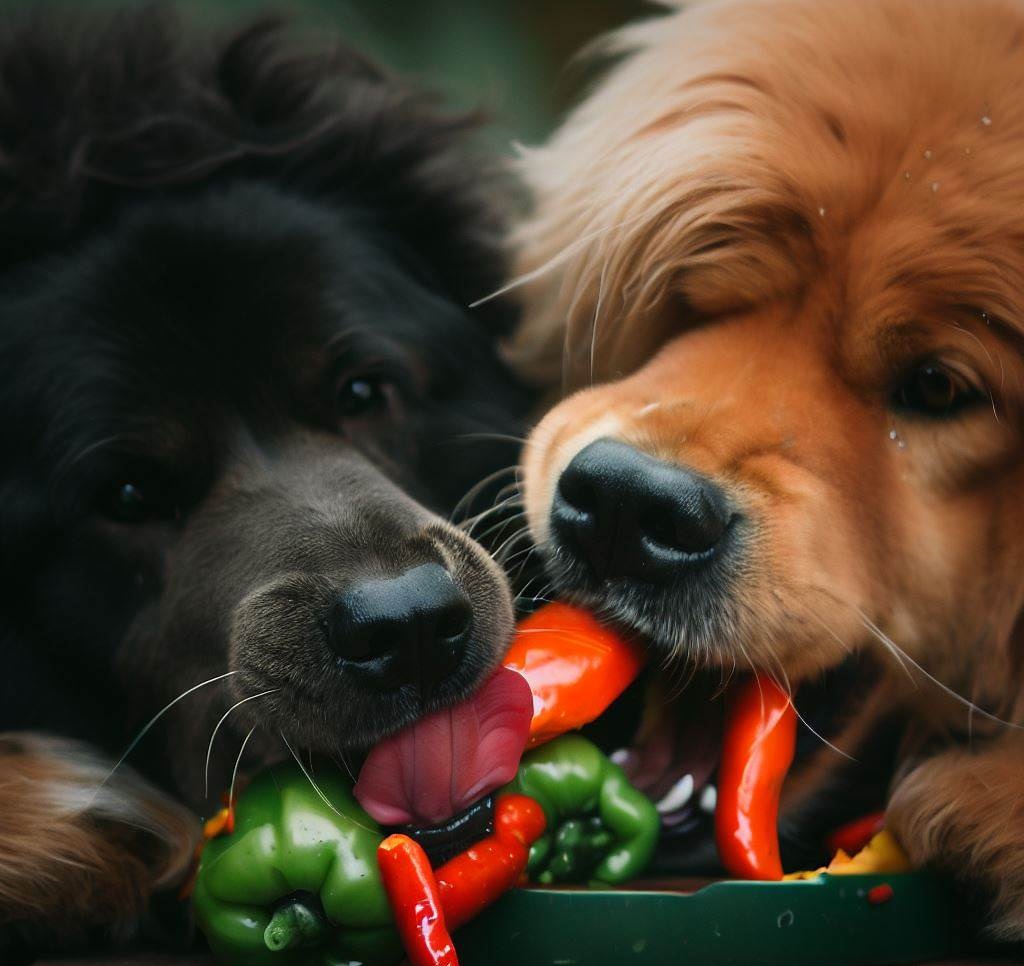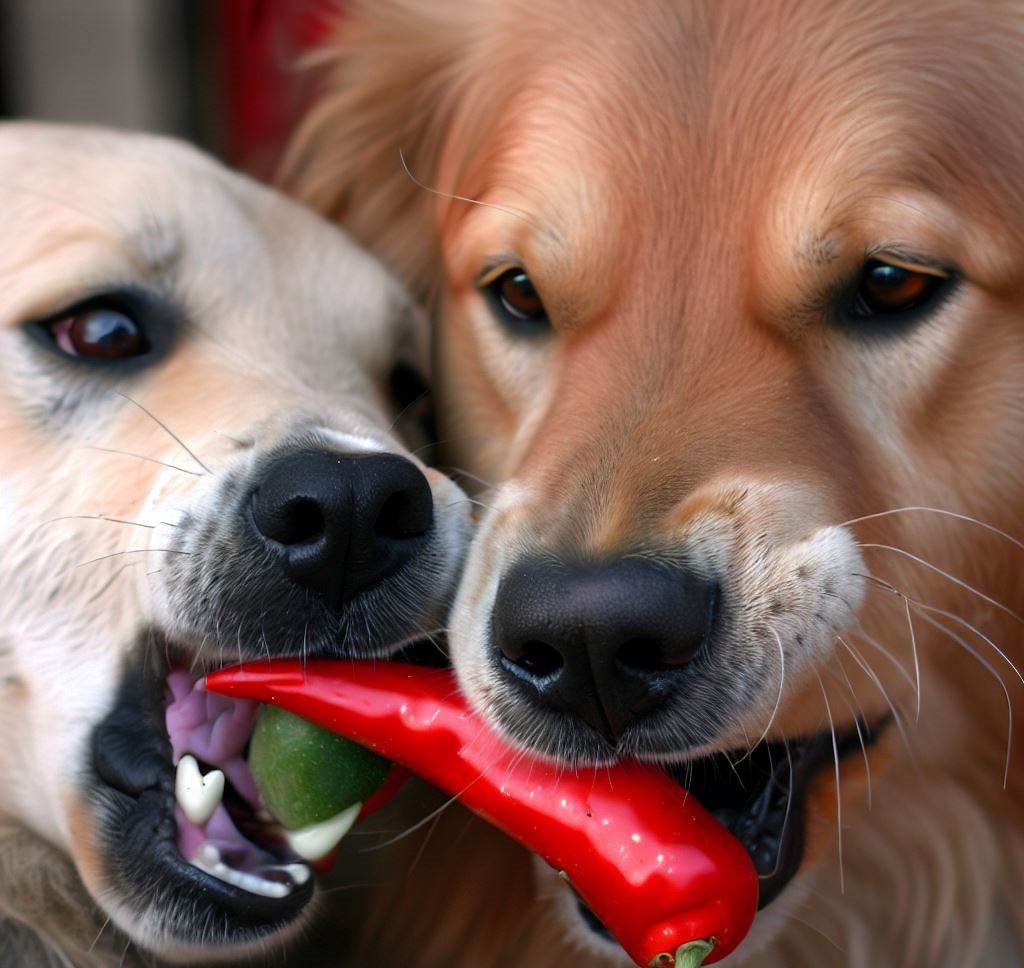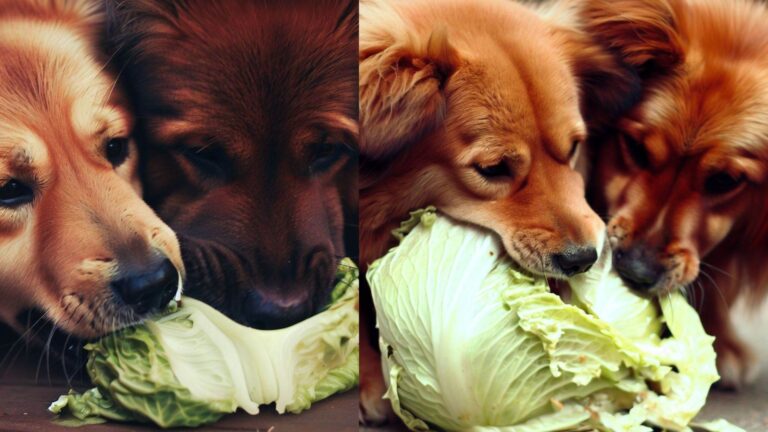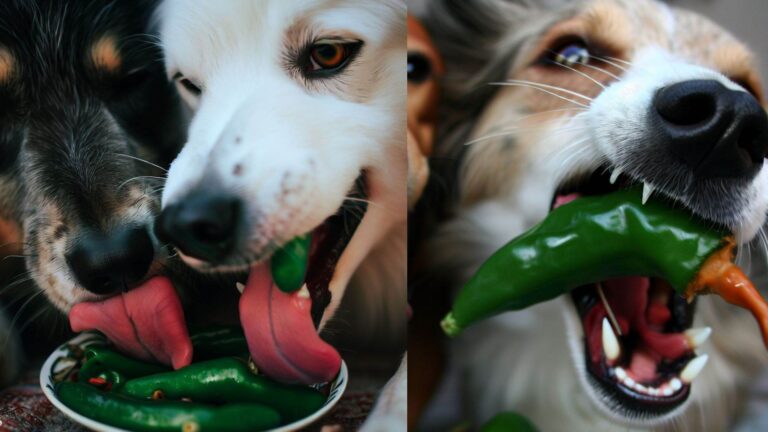Dogs are known to be man’s best friend, and for a good reason. They are loyal, affectionate, and playful, making them the perfect addition to any household. However, as a responsible dog owner, it is important to ensure that your furry friend is not only happy and healthy but also safe. One of the ways to ensure this is by paying attention to what they eat. In this article, we will be discussing if dogs can eat peppers.
Peppers are a popular vegetable used in cooking across the globe, and they come in various colors, such as red, yellow, and green. They are rich in nutrients such as vitamins C and A, potassium, fiber, and antioxidants. They are also known for their spicy taste, which comes from a compound called capsaicin.
Table of Contents
Can Dogs Eat Peppers?
The answer to this question is not a straightforward yes or no. While peppers are generally safe for dogs to eat, there are a few things that need to be taken into consideration.

Firstly, dogs have different digestive systems compared to humans. What this means is that while a certain food may be safe for humans, it may not be safe for dogs. Peppers contain capsaicin, which can cause stomach upset and diarrhea in some dogs, especially if they consume large quantities. This can be more pronounced in dogs with sensitive stomachs, so it is important to introduce peppers gradually into your dog’s diet and in small amounts.
Another factor to consider is the type of pepper. While bell peppers are generally safe for dogs to eat, other types of peppers, such as chili peppers and jalapeños, should be avoided. These peppers are significantly spicier and can cause a lot of discomfort for your furry friend, including vomiting and diarrhea.
Benefits Of Peppers For Dogs
As mentioned earlier, peppers are rich in nutrients and can offer several benefits to dogs. Some of the benefits include:
- Improved immune system: Peppers contain high amounts of vitamin C, which can help boost your dog’s immune system.
- Improved digestion: The fiber found in peppers can help improve digestion and regulate bowel movements.
- Improved eyesight: Peppers are rich in vitamin A, which is essential for good eyesight.
- Reduced inflammation: The antioxidants found in peppers can help reduce inflammation in dogs, making it beneficial for dogs with arthritis.
Types Of Peppers That Are Safe For Dog
There are various types of peppers, but not all are safe for dogs to consume. Here are some types of peppers that are safe for dogs to eat:
- Bell peppers: Bell peppers are mild and contain high levels of vitamins A and C, making them a nutritious and safe option for dogs. They are available in different colors, including green, yellow, orange, and red.
- Sweet peppers: Sweet peppers are similar to bell peppers but smaller in size and have a sweeter taste. They are also packed with nutrients, making them a healthy option for dogs.
- Banana peppers: Banana peppers are mild and slightly sweet. They contain high amounts of vitamins A and C, making them a healthy option for dogs. However, they should be fed in moderation, especially if your dog has a sensitive stomach.
- Cubanelle peppers: Cubanelle peppers are mild and slightly sweet. They are also a good source of vitamins A and C, making them a nutritious option for dogs. However, they should be fed in moderation, especially if your dog has a sensitive stomach.
- Peppadew peppers: Peppadew peppers are mild, slightly sweet, and tangy. They are a good source of vitamins A and C, making them a healthy option for dogs. However, they should be fed in moderation, especially if your dog has a sensitive stomach.
Types Of Peppers That Are Not Safe For Dog
While some types of peppers are safe for dogs to eat, other peppers can be dangerous or toxic. Here are some types of peppers that are not safe for dogs to eat:
- Chili peppers: Chili peppers are spicy and can cause a lot of discomfort for dogs, including vomiting and diarrhea. They contain capsaicin, which can be irritating to the digestive system and cause inflammation. In severe cases, chili peppers can even cause damage to the liver and kidneys.
- Jalapeño peppers: Jalapeño peppers are also spicy and can cause digestive discomfort for dogs. They contain capsaicin, which can irritate the digestive system and cause inflammation. In some cases, they can also cause allergic reactions in dogs.
- Cayenne peppers: Cayenne peppers are extremely spicy and can cause a lot of discomfort for dogs. They contain high amounts of capsaicin, which can cause digestive upset and inflammation. In severe cases, cayenne peppers can even cause organ damage.
- Serrano peppers: Serrano peppers are very spicy and can cause digestive discomfort for dogs. They contain capsaicin, which can irritate the digestive system and cause inflammation. In some cases, they can also cause allergic reactions in dogs.
How To Feed Peppers To Your Dog?
If you decide to feed your dog peppers, it is important to do so in moderation and in a safe manner. Here are a few tips on how to feed peppers to your dog:
- Introduce peppers gradually: Start by feeding your dog a small piece of pepper and observe their reaction. If they tolerate it well, you can gradually increase the amount.
- Remove the seeds and stem: The seeds and stem of peppers can be difficult for dogs to digest and can cause stomach upset. Make sure to remove them before feeding your dog.
- Cook the peppers: Cooking them can make them easier for your dog to digest and reduce their spiciness.
- Mix peppers with your dog’s food: You can mix peppers with your dog’s regular food to make it more palatable.
FAQs

Are peppers toxic to dogs?
Some types of peppers, such as chili peppers and cayenne peppers, can be toxic to dogs. They contain capsaicin, which can irritate the digestive system and cause inflammation. It is important to check with your veterinarian before feeding your dog any type of pepper.
Can dogs eat chili peppers?
No, dogs should not eat chili peppers. Chili peppers are spicy and can cause digestive discomfort for dogs. They also contain large amounts of capsaicin, which can be toxic to dogs.
Can dogs eat sweet peppers?
Yes, dogs can eat sweet peppers. Sweet peppers are a safe and nutritious option for dogs.
Can dogs eat pickled peppers?
It depends on the type of pickled pepper. Some pickled peppers may contain high levels of sodium, which can be harmful to dogs. It is important to check the ingredients before feeding your dog pickled peppers.
Can dogs eat pepperoni pizza?
No, dogs should not eat pepperoni pizza. Pepperoni is a processed meat product high in fat and sodium, which can harm dogs. Additionally, the pizza crust may contain ingredients that are not safe for dogs, such as garlic or onion.
Can dogs eat pepper flakes?
No, dogs should not eat pepper flakes. Pepper flakes are spicy and may cause digestive discomfort for dogs. They also contain large amounts of capsaicin, which can be toxic to dogs.
Can dogs eat dried peppers?
No, dogs should not eat dried peppers. Dried peppers are extremely spicy and can cause digestive upset for dogs. They also contain high amounts of capsaicin, which can be toxic to dogs in large amounts.
Can dogs be allergic to peppers?
Yes, some dogs may be allergic to peppers. Signs of an allergic reaction in dogs may include itching, swelling, hives, and difficulty breathing. If you suspect your dog is allergic to peppers or any other food, seek veterinary care immediately.
How much pepper can dogs eat?
While some types of peppers are safe for dogs to eat in moderation, they should not make up a significant portion of your dog’s diet.
What should I do if my dog eats a pepper they shouldn’t have?
If your dog has eaten a pepper that they shouldn’t have, monitor them closely for any signs of digestive discomfort or other symptoms. If your dog exhibits symptoms such as vomiting, diarrhea, or difficulty breathing, seek veterinary care immediately. It is always better to err on the side of caution when it comes to your dog’s health.
Can dogs eat bell peppers raw or cooked?
Dogs can eat both raw and cooked bell peppers as long as they are not seasoned with any spices or seasonings that are harmful to dogs. Raw peppers may be slightly more difficult for dogs to digest than cooked peppers.
Conclusion
In conclusion, while peppers are generally safe for dogs to eat, it is important to introduce them gradually and in small amounts. Make sure to avoid spicy peppers such as chili peppers and jalapeños, and always remove the seeds and stem before feeding them to your furry friend.
As always, it is important to consult with your veterinarian before introducing any new food into your dog’s diet.






